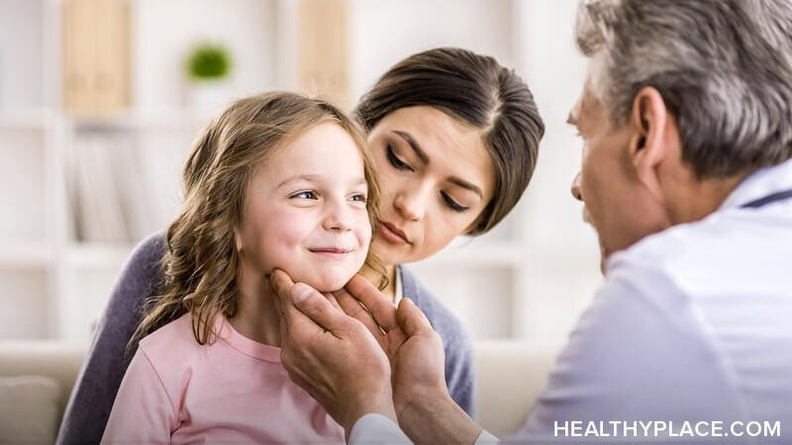Anxiety Over a Loved One's Health: Dos and Don'ts

It's common to experience anxiety over a loved one's health. Whether someone lives with an anxiety disorder or if anxiety isn't normally bothersome, when a loved one is facing health problems, most people experience some degree of worry and fear about whether a loved one will be okay. When facing anxiety over a loved one's health, there are some dos and don'ts to help guide you and ease anxiety.
Anxiety Over a Loved One's Health Is Natural but Shouldn't Take Over
No matter who our loved one is or what age he or she is, when someone we care about has health problems, we worry. Also, parenting and anxiety are often nasty little co-conspirators. It makes sense that when the loved one experiencing health problems is one's child, anxiety skyrockets.
My son has been experiencing health problems that involve ongoing pain that is keeping him out of school and activities. Admittedly, I've experienced anxiety over my son's health and wellbeing. When I began to notice my signs of anxiety escalate, when I realized that my thoughts, emotions, and physical sensations were intense and unilaterally focused on his health, I knew that I had to reign in my worries.
Stopping anxiety over a loved one's health isn't a simple matter of telling the worry to go away. Nor would anyone want all the worry to disappear; after all, a degree of anxiety keeps us sharp and focused on what needs to be done. Some anxiety naturally occurs because we care about someone. Letting it take over our physical and mental wellbeing isn't helpful to anyone. Here are some ways to reign in anxiety over a loved one's health.
Dos and Dont's When Dealing with Anxiety Over a Loved One's Health
Don't neglect your own health. Ignoring your physical and emotional health makes anxiety even worse because you're not equipped to deal with it.
Do practice self-care. Granted, when a loved one is experiencing health problems, that's where your focus is. Yet taking time each day, multiple times if possible, to do something that enhances wellbeing and reduces anxiety allows you to feel calm and focus better on your loved one. Try deep breathing, going for a walk, reading, playing with Play-Doh or sand, coloring, or anything else that quiets your mind and body (Top 21 Anxiety Grounding Techniques).
Don't stay up all night surfing the Internet for obscure diseases that might match your loved one's symptoms. While often tempting to do, this only leads to lost sleep, frustration, and new anxiety over strange conditions. Plus, it won't help cure anyone.
Do educate yourself. The more you know and understand about what's happening with your loved one, the less anxiety you'll experience (Curiosity Cures Anxiety). Rather than having general worries and imagined what-ifs, when you talk to doctors and nurses, read information you're given, and even search the library or online for something specific, related to your loved one's health. This reassurance will help reduce your anxiety.
Don't let anxiety run rampant. When anxious thoughts run amok, they feed on each other and grow large. It's natural to play the "what-if" game, wondering what will happen to our loved ones. Anxiety is a weed in our garden choking out all other thoughts and feelings and taking over what we think, what we feel, and what we do. Rather than being fully present with the loved one who needs us, we're lost in anxiety.
Do be aware. Be aware of your anxiety and when it's taking over. Be aware of the medical situation. To remove the unknown that contributes to anxiety, be willing to ask questions and gather answers.
Don't feel you have to be at everyone's mercy. This leads to the belief that nothing is within your control, and that feeling of lack of control makes anxiety soar (The Big Question- How to Say ‘No’, Worry Free?).
Do focus on the love your feel toward your loved one and believe in yourself. You can initiate appointments, ask questions, and pursue answers. This helps your own anxiety over your loved one's health decrease and allows you to focus not on anxiety but on your loved one.
Do try these. You might just find that your anxiety over a loved one's health decreases.
You can also connect with Tanya J. Peterson on her website, Google+, Facebook, Twitter,Linkedin and Pinterest.
APA Reference
Peterson, T.
(2015, November 12). Anxiety Over a Loved One's Health: Dos and Don'ts, HealthyPlace. Retrieved
on 2026, March 3 from https://www.healthyplace.com/blogs/anxiety-schmanxiety/2015/11/anxiety-over-a-loved-ones-health-dos-and-donts